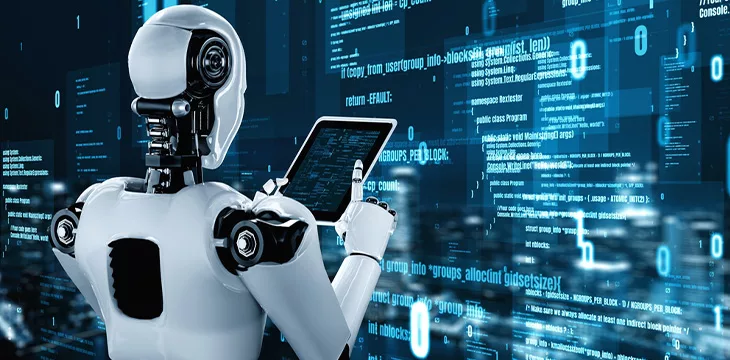
|
Getting your Trinity Audio player ready... |
A new report from the investment professional association Mercer CFA Institute has pointed to the growing trend of artificial intelligence (AI) usage by pension fund managers to improve efficiency.
In its report, Mercer submitted that AI has the potential to assist fund managers in sifting through data troves to find promising investment opportunities. Mercer’s senior partner David Knox said pension funds can leverage AI functionalities to build custom investment portfolios for clients.
Through AI, Knox says analysts can track trading patterns and uncover market sentiments in real-time, far beyond human capabilities. Knox opines that funds using AI in market analysis are on track to earn higher returns, improve portfolio diversification, and avoid the throes of volatility.
Pivoting to AI tools will assist funds in personalized marketing campaigns for their client base without the typical time and cost challenges, according to the report. Fund managers can use AI to inch toward their environmental, social, and governance (ESG) goals while predicting investors’ behaviors during black swan events.
“For example, a stock market crash can lead to members switching to defensive asset classes, whereas a newly elected government may lead to some retirees withdrawing their accrued benefits,” Knox said.
Other perks for pivoting to AI for pension fund managers include its application in backtesting and validation, credit risk estimation, and compliance with Know Your Customer (KYC) requirements. The report submitted that leaning on AI for trade execution will optimize processes, allowing systems to remain nimble in execution.
The report warns of several risks linked with using AI by pension funds. Top on the list of concerns highlighted by Mercer is the possibility of AI firms generating misleading information or inaccurately interpreting market data.
Another risk is the possibility for bad actors to hijack AI systems for their nefarious use, with the report calling for “strong defenses against cyberattacks, scammers, and other security breaches.”
For funds using generative AI in their processes, the possibility of a data leak remains a reality, with several financial and technology firms already banning employees from using the technology.
AI’s impact on the workplace
While AI makes its way to mainstream, there are fears that the technology could eliminate millions of jobs, with entry-level roles being the most affected.
One report argues that rather than eliminating jobs, AI will increase the efficiency and productivity of staff, with firms urged to invest in employee retraining. Over 70% of CEOs are sinking funds into AI investments amid the frenetic rush of regulators to keep up with innovation in the space.
In Web 3, OpenAI’s ChatGPT has been shown to have the capability to carry out smart contract audits. Still, inherent defects like hallucinations have underscored the importance of auditors in the space.
In order for artificial intelligence (AI) to work right within the law and thrive in the face of growing challenges, it needs to integrate an enterprise blockchain system that ensures data input quality and ownership—allowing it to keep data safe while also guaranteeing the immutability of data. Check out CoinGeek’s coverage on this emerging tech to learn more why Enterprise blockchain will be the backbone of AI.
Watch Combat IQ’s Tim Malik: Harnessing the powers of AI and blockchain
Recommended for you
Lorem ipsum odor amet, consectetuer adipiscing elit. Elit torquent maximus natoque viverra cursus maximus felis. Auctor commodo aliquet himenaeos fermentum
Lorem ipsum odor amet, consectetuer adipiscing elit. Accumsan mi at at semper libero pretium justo. Dictum parturient conubia turpis interdum

 11-22-2024
11-22-2024


